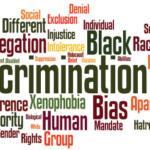She doesn’t think the results reflect only what people see in the real world.
It’s true there are fewer women surgeons, “so of course we don’t really expect women to be surgeons, so … then we have fewer women surgeons,” Dr. Salles says. “There’s definitely [a cycle] going on there.”
But there are also fewer women than men in family medicine, she points out.
Sociologist Jennifer Sheridan of the Women in Science & Engineering Leadership Institute at the University of Wisconsin, Madison, who was not involved in either test, cautions implicit bias is an ordinary phenomenon and “does not actually tell us whether healthcare professionals and/or surgeons are acting with bias.”
“This study merely documents the presence of biases that most people have, and it suggests that the bias could affect things we care about,” Ms. Sheridan tells Reuters Health.
Ms. Sheridan thinks the gender-specialty test may have been unreliable. “It seems to me that choosing family medicine as the discipline opposite surgery might not have been a fair choice, given the word ‘family’ is right in (the) name of the category,” she says.
Another limitation of the study, which the researchers acknowledge, is that they didn’t know the specialties of the healthcare professionals who took the gender-career association test.
Still, although her team agrees on the need for further study, Dr. Salles believes the current results could inform hiring managers about the need to check for bias when making appointment decisions.
“What I think is the standard in medicine … is trying to assess whether someone is like you or not,” she said. As long as people keep doing that in job interviews, she adds, “then we’re going to keep selecting for the same types of people.”
References
- Salles A, Awad M, Goldin L, et al. Estimating implicit and explicit gender bias among health care professionals and surgeons. JAMA Netw Open. 2019 Jul 3;2(7):e196545.
- Dossa F, Baxter NN. Implicit bias in surgery-hiding in plain sight. JAMA Netw Open. 2019 Jul 3;2(7):e196535.



